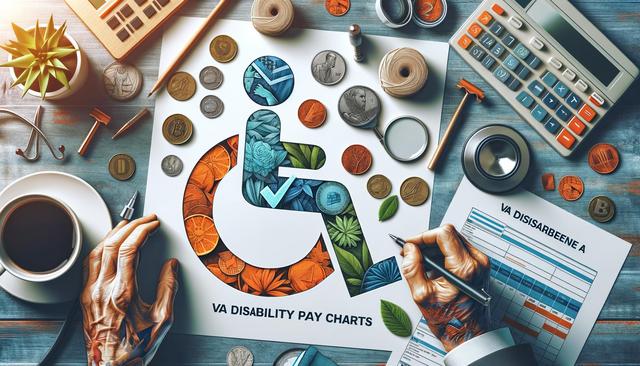Understanding the Role of Divorce Attorneys
Divorce attorneys specialize in family law and play a critical role in guiding clients through the legal aspects of ending a marriage. Their responsibilities range from filing necessary paperwork to representing clients in court hearings. A divorce attorney’s primary goal is to protect their client’s legal rights, assets, and parental responsibilities. Depending on the complexity of the case, they may also collaborate with financial advisors, child custody experts, or mediators.
It’s important to understand that attorneys do more than just argue cases in court. They help with negotiations, provide legal advice, and often facilitate settlements. In many cases, they aim to resolve disputes outside the courtroom through mediation or collaborative law methods. This not only reduces emotional stress but can also save time and legal expenses.
When choosing a divorce attorney, consider their experience in family law, communication style, and familiarity with local court systems. Many attorneys offer initial consultations, which can be a helpful opportunity to assess compatibility and understand the process ahead.
Key Considerations Before Hiring a Divorce Attorney
Selecting the right divorce attorney requires careful thought. It’s advisable to start with some basic research, such as reading reviews, checking credentials, and asking for referrals. Once you have a shortlist, schedule consultations to ask targeted questions, such as:
- How many divorce cases have you handled?
- What is your preferred approach—litigation, mediation, or collaborative law?
- What is your fee structure and billing process?
Understanding these aspects can help you make an informed decision. Keep in mind that the attorney-client relationship should be based on trust and open communication. Your attorney will be dealing with sensitive information, so comfort and confidence in their ability are essential.
Also consider the size and structure of the law firm. Larger firms may have more resources, while smaller firms might offer more personalized attention. The right choice depends on your specific needs and the complexity of your case.
The Legal Process of Divorce
The divorce process typically begins with filing a petition in the appropriate family court. After filing, the other spouse must be served with the documents, and they will have a set period to respond. From there, both parties engage in the discovery phase, where financial and personal information is exchanged to support negotiations or court proceedings.
Common legal issues addressed during divorce include:
- Division of marital property and debts
- Spousal support (alimony)
- Child custody and visitation rights
- Child support and financial responsibilities
A divorce attorney ensures that all legal steps are followed and deadlines are met. They prepare court documents, represent clients during hearings, and negotiate terms on their behalf. Some cases resolve quickly if both parties agree, while others may involve lengthy litigation.
Regardless of the path your divorce takes, having a knowledgeable attorney can provide clarity and structure during a challenging time. They help ensure that your rights are upheld and that all legal matters are handled efficiently.
Negotiation and Alternative Dispute Resolution
While some divorces require courtroom intervention, many are resolved through negotiation or alternative dispute resolution (ADR) methods. Divorce attorneys often recommend these approaches to reduce conflict and foster cooperative solutions. Mediation and collaborative divorce are two common forms of ADR.
- Mediation: Involves a neutral third party who helps both spouses reach an agreement. Attorneys may attend to provide support and ensure the final agreement is legally sound.
- Collaborative Divorce: Each spouse hires their own attorney, and all parties commit to resolving issues outside of court. This process often includes financial professionals and child specialists if needed.
These alternatives can be more cost-effective and less emotionally draining than litigation. They allow for more control over the outcome, as opposed to leaving decisions up to a judge. A skilled divorce attorney will guide you through these processes and advocate for your interests while promoting a fair resolution.
Even if initial attempts at negotiation fail, having an attorney experienced in both ADR and court litigation ensures you are prepared for any scenario. Flexibility and preparation are key when navigating the complexities of divorce.
Preparing for Your First Meeting with a Divorce Attorney
Being well-prepared for your initial consultation with a divorce attorney can set the tone for the entire process. It’s helpful to bring relevant documents and have a clear understanding of your goals. Common documents to gather include:
- Marriage certificate
- Financial statements (bank accounts, investments, debts)
- Tax returns from the past few years
- Documentation related to property and assets
In addition to documents, think about your future needs and preferences. Do you want to keep the family home? What are your expectations regarding child custody or alimony? Having these conversations early helps your attorney develop a strategy tailored to your circumstances.
Also, prepare a list of questions to ask during the consultation. Understanding your attorney’s communication practices, availability, and approach to conflict resolution can help you determine if they are the right fit. Remember, this relationship may last several months or longer, so it’s important to feel confident in your choice.
Finally, be honest and transparent during discussions. The more information your attorney has, the better they can advocate for you. Divorce is a deeply personal matter, and open communication can make a significant difference in the outcome.
Conclusion: Moving Forward with Confidence
Choosing to work with a divorce attorney is a significant step toward managing the legal and emotional complexities of ending a marriage. Whether your case involves amicable negotiations or more contentious disputes, having professional guidance can make the process more manageable. By understanding your options, preparing thoroughly, and selecting an attorney who aligns with your needs, you can navigate this transition with greater clarity and assurance. For anyone facing divorce, a well-informed and supportive legal partner can be an invaluable asset on the path to a new beginning.


